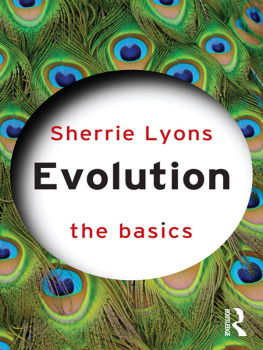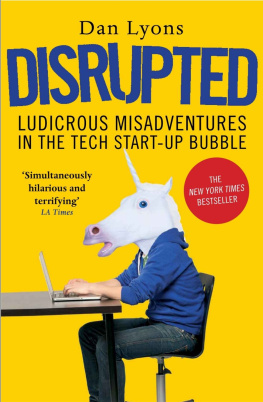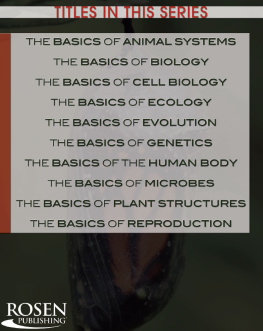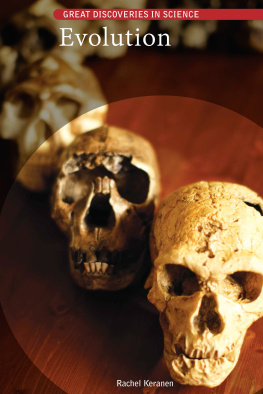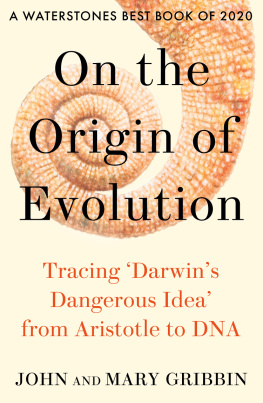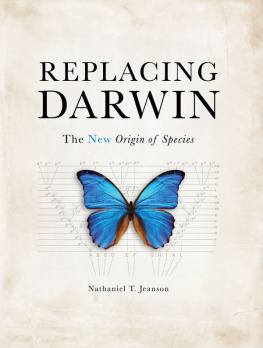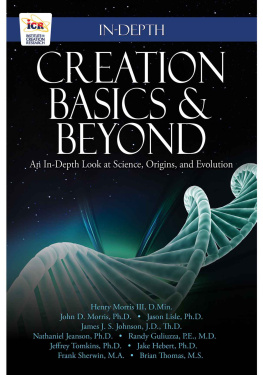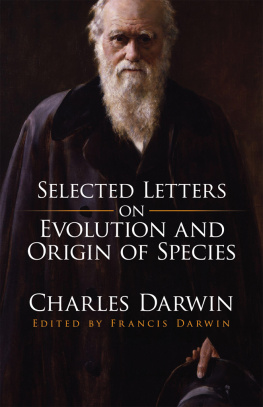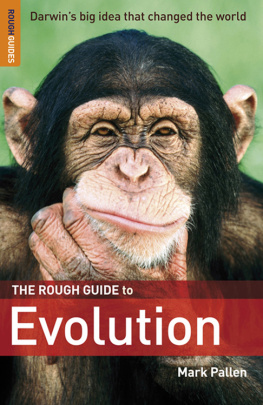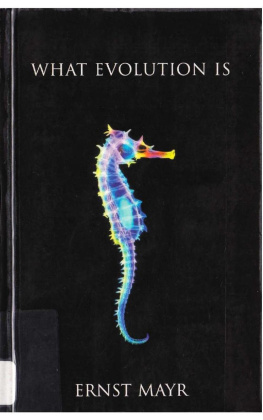EVOLUTION
THE BASICS
Evolution: The Basics is an engaging introduction to the history, development and science of the theory of evolution. Beginning pre- Darwin and concluding with the latest research and controversies, readers are introduced to the origins of the idea of evolution, the ways in which it has developed and been adapted over time, and the science underpinning it all. Topics addressed include:
- Early theories of evolution
- The impact of Darwins On the Origin of Species
- The discovery of genetics and Mendels experiments
- Molecular evolution and the discovery of DNA
- The expansion of life and the persistence of disease
- Revisiting evolutionary ethics and the development of empathy.
Evolution: The Basics examines the role of evolution in current debates and discusses the possible future developments in the field. This book is invaluable reading for all students and individuals seeking to understand the wide-ranging sphere of evolutionary theory.
Sherrie Lyons is Assistant Professor at the Center for Distance Learning of Empire State College, State University of New York. She is author of Species, Serpents, Spirits, and Skulls: Science at the Margins in the Victorian Age and Thomas Henry Huxley: The Evolution of a Scientist.
The Basics
ACTING
BELLA MERLIN
ANTHROPOLOGY
PETER METCALF
ARCHAEOLOGY (SECOND EDITION)
CLIVE GAMBLE
ART HISTORY
GRANT POOKE AND DIANA NEWALL
THE BIBLE
JOHN BARTON
BUDDHISM
CATHY CANTWELL
CRIMINAL LAW
JONATHAN HERRING
CRIMINOLOGY (SECOND EDITION)
SANDRA WALKLATE
ECONOMICS (SECOND EDITION)
TONY CLEAVER
EUROPEAN UNION (SECOND EDITION)
ALEX WARLEIGH-LACK
FILM STUDIES
AMY VILLAREJO
FINANCE (SECOND EDITION)
ERIK BANKS
HUMAN GENETICS
RICKI LEWIS
INTERNATIONAL RELATIONS
PETER SUTCH AND JUANITA ELIAS
ISLAM (SECOND EDITION)
COLIN TURNER
JUDAISM
JACOB NEUSNER
LANGUAGE (SECOND EDITION)
R.L. TRASK
LAW
GARY SLAPPER AND DAVID KELLY
LITERARY THEORY (SECOND EDITION)
HANS BERTENS
LOGIC
JC BEALL
MANAGEMENT
MORGEN WITZEL
MARKETING (SECOND EDITION)
KARL MOORE AND NIKETH PAREEK
PHILOSOPHY (FOURTH EDITION)
NIGEL WARBURTON
PHYSICAL GEOGRAPHY
JOSEPH HOLDEN
POETRY (SECOND EDITION)
JEFFREY WAINWRIGHT
POLITICS (FOURTH EDITION)
STEPHEN TANSEY AND NIGEL JACKSON
THE QURAN
MASSIMO CAMPANINI
RELIGION (SECOND EDITION)
MALORY NYE
RESEARCH METHODS
NICHOLAS WALLIMAN
ROMAN CATHOLICISM
MICHAEL WALSH
SEMIOTICS (SECOND EDITION)
DANIEL CHANDLER
SHAKESPEARE (SECOND EDITION)
SEAN MCEVOY
SOCIOLOGY
KEN PLUMMER
TELEVISION STUDIES
TOBY MILLER
TERRORISM
JAMES LUTZ AND BRENDA LUTZ
THEATRE STUDIES
ROBERT LEACH
WORLD HISTORY
PETER N. STEARNS
WORLD MUSIC
RICHARD NIDEL
EVOLUTION
THE BASICS
sherrie lyons

First published 2011
by Routledge
2 Park Square, Milton Park, Abingdon, Oxon OX14 4RN
Simultaneously published in the USA and Canada
by Routledge
711 Third Avenue, New York, NY 10017
Routledge is an imprint of the Taylor & Francis Group, an informa business
2011 Sherrie Lyons
The right of Sherrie Lyons to be identified as author of this work has been asserted by her in accordance with sections 77 and 78 of the Copyright, Designs and Patents Act 1988.
All rights reserved. No part of this book may be reprinted or reproduced or utilised in any form or by any electronic, mechanical, or other means, now known or hereafter invented, including photocopying and recording, or in any information storage or retrieval system, without permission in writing from the publishers.
Trademark notice: Product or corporate names may be trademarks or registered trademarks, and are used only for identification and explanation without intent to infringe.
British Library Cataloguing in Publication Data
A catalogue record for this book is available from the British Library
Library of Congress Cataloging in Publication Data Lyons, Sherrie Lynne, 1947
Evolution / Sherrie Lyons.
p. cm. (The basics)
Includes bibliographical references.
1. Evolution (Biology) I. Title.
QH367.L956 2012
576.8-dc22
2011002891
ISBN: 978-0-415-59225-3 (hbk)
ISBN: 978-0-415-59226-0 (pbk)
ISBN: 978-0-203-80806-1 (ebk)
FIGURES
Acknowledgements
Reproduced with permission from John van Wyhe ed., The Complete Work of Charles Darwin Online (http://darwin-online.org.uk/)
2004 Human Evolutionary Genetics, by M. A. Jobling, M. E. Hurles and C. Tyler-Smith.
Reproduced by permission of Garland Science/Taylor & Francis LLC.
2002 Genetics for Healthcare Professionals, by Heather Skirton and Christine Patch.
Reproduced by permission of Garland Science/Taylor & Francis LLC.
2008 Molecular Biology of the Cell, 5th edn, by Bruce Alberts et al.
Reproduced by permission of Garland Science/Taylor & Francis LLC.
Introduction
Why Study Evolution?
Evolution is the great unifying theory for biology. No idea in biology has been more scientifically powerful. Evolution has in the past and continues today to provide a research program in diverse fields including paleontology, molecular biology, embryology, ecology, human behavior, and medicine. It has impacted other fields as well, from computer animation software design to economic theory. Because of this, evolution is increasingly relevant for understanding human society. Evolution is not just about dinosaurs and fossils or our common ancestry with apes. Evolutionary ideas have provided insight into topics such as decision-making, mating habits, morality, mental illness, and religion. It explains why most of us love the taste of foods that are high in fat, salt, and sugar. It helps elucidate why we are capable of both extremely selfish and unselfish behavior, exhibit both honesty and deceit, and are sometimes spiteful while at other times forgiving. Evolution reveals that we are all interconnected in the great web of life and can provide guidance in taking care of our amazing planet earth. Charles Darwins good friend Thomas Huxley (182595) wrote over 100 years ago, there is no field of biological inquiry in which the influence of the Origin of Species is not traceable and that as the embodiment of an hypothesis it is destined to be the guide of biological and psychological speculation for the next three or four generations. Huxleys words were prophetic.
The Meaning of Evolution
Life on earth today is the result of its ever-changing complex history that began billions of years ago. However, this idea is a relatively recent development in Western thought. The Christian world view from the Middle Ages almost up to Darwins time held that the world was both constant and of short duration. The idea of evolution, i.e. that
Next page
